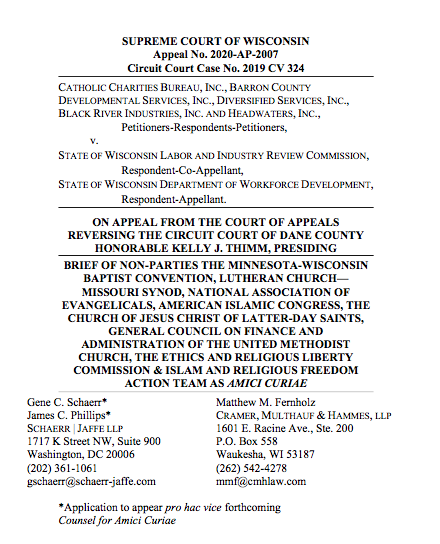Summary of facts: Catholic Charities Bureau sought a religious exemption from the state’s unemployment compensation system so that it could join the Wisconsin Bishop’s unemployment compensation plan (which is more efficient and provides the same level of benefits). Under Wisconsin law, any non-profit “operated primarily for religious purposes” qualifies for this exemption. But the court of appeals in this case held that CCB did not qualify because (1) it was separately incorporated from the Diocese and (2) its “activities” (serving the poor, etc.) were primarily charitable, not religious
RFI’s position: By imposing the state’s view of what it means to be religious, based on organizational structure and the who and how of charitable service, the Commission and the appeals court are prescribing a single form of religious orthodoxy in the context of the state unemployment law. That violates the U.S. Constitution’s Establishment and Free Exercise Clauses, together with the well-recognized “church autonomy doctrine” that is grounded in both Clauses.
Read the amicus brief here.
THE RFI BLOG

Myths of Religious Nationalism in America and Abroad

France’s Olympic Hijab Ban Violates International Law And Exacerbates Tensions

RFI Briefs USCIRF on Lessons from 25 Years of U.S. Designating Religious Freedom Violators

Thought Police: Protecting the People from Prayer

A Religious “Delaware”: Establishing a State Haven for Religious Corporations
CORNERSTONE FORUM

Challenges to Religious Freedom in Iraq and the Critical Need for Action

Public Bioethics & the Failure of Expressive Individualism

Religious Liberty in American Higher Education

Scotland’s Kate Forbes and the March of Secularism


